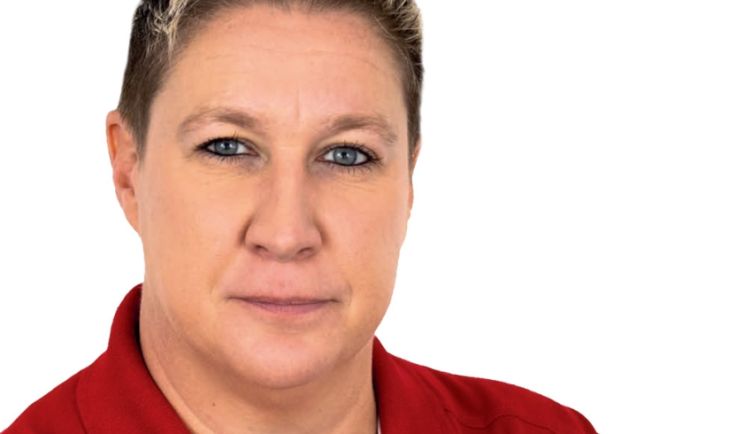The UK’s franchise sector offers a multitude of smart investments for hard-working entrepreneurs – here are six reasons why franchisees are lining up to reap the rewards
Pip Wilkins QFP has been at the heart of UK franchising for over 25 years, playing a pivotal role in supporting both brands and franchisees in her role as CEO of the BFA (British Franchise Association). Pip represents the UK at the European Franchise Federation and the World Franchise Council and is a sought-after speaker, mentor, and advocate for innovation. Here, she explains how UK franchising has matured into a globally-recognised industry – and why UK franchisees, both seasoned and new, are lining up to reap the rewards.
1. Market-leading brands
As shown in our latest survey (October 2024), published in the British Franchise Journal and sponsored by NIC Services Group, the number of franchisors in the UK has steadily increased over the last 20 years, signalling that more and more UK brands are viewing franchising as a viable growth strategy. We’ve seen significant expansion in sectors like hotels and catering, as well as personal services. With our ageing population, there’s been a notable rise in domiciliary care brands entering franchising, as more elderly people choose to remain in their homes. Take Home Instead: in 2007, they had 17 franchisees; today, they have over 250. This brand entered the market at just the right time, recognising the growing demand for in-home care.
Franchising often reflects societal needs and emerging trends. For example, when government cuts impacted children’s activities, we saw a surge in brands filling these gaps, offering academic programmes, after-school clubs, music and movement classes, yoga, and dance.
2. Reduced risks
Franchising is self-regulated in the UK. No one wants to see bad news stories, and the BFA, along with other franchisors, strongly encourages newcomers to do things the right way.
Promoting standards and ethics is at the heart of what we do. The UK franchising community is unlike any other. We’re constantly working together to be better than we were yesterday, driving the market forward. Franchisors are deeply committed to their franchisees’ ongoing success.
Before a franchisor can join the BFA, we assess whether their business is viable and transferable. Can it be successfully run in another location? Is is profitable for both the franchisor and the franchisee? We also ensure the franchisor isn’t misrepresenting the opportunity and that they disclose anything material to potential franchisees during the decision-making process.
The European Code of Ethics for Franchising sets out guidelines for associations across Europe, although each country has its own interpretation and extension of that code. Our version, for example, spans 60-70 pages and covers the ins and outs of ethical franchising in the UK. This, combined with our membership rules, provides protection for brands and investors.
3. High growth potential
In the UK, there are just over 50,000 franchise units run by more than 20,000 individual franchisees. That means 35% of franchisees are now operating multiple territories. Our research has revealed a key shift in the past few years: the mean number of units per franchisee has significantly risen from 4.87 in 2018 to 11.53 in 2024, highlighting the growing skills of franchisees in managing larger portfolios.
Existing multi-unit franchisees are well positioned to open more units, acquire exiting franchisees, or purchase resale opportunities within their networks. Approximately 66% of UK franchisors plan to offer at least one unit for resale in the coming year, creating exciting opportunities for investors seeking quicker returns. I think we’ll see these trends continue to grow.
4. Job satisfaction
The most important thing when choosing a franchise is to find something you’re passionate about. This isn’t a job you can just resign from if it doesn’t fit with you. You’re committing to a business for at least five years and building an asset.
Ultimately, you want to make sure the people you’re working with feel like your tribe, and that the values and culture of the business align with your own.
5. Multi-brand expansions
As the market matures, we’re seeing increases in the number of multi-brand franchisees. This has traditionally been seen in the fast-food sector, where you might find someone with multiple KFCs, Costa Coffees, and gyms. But now, we’re starting to see multi-brand growth in other sectors, with operators expanding beyond their usual scope into areas like domiciliary care, storage, or tutoring. This trend will continue to gather momentum.
6. Global opportunities
The UK is often the first choice for international brands looking to expand into Europe. There’s no legislation, which makes expansion here easier, and we’re English-speaking, eliminating many language barriers.
A few years ago, the BFA established an international membership category to accredit brands looking to enter the UK market based on their in-country experience. We look for a clear plan for expansion in the UK. They must have done their research to ensure their brand is transferable and be getting the right advice to adapt their concept for the UK.
If you’re considering franchising with a new international brand, you need to understand how it will fit in the UK. With any franchise – whether homegrown or international – you need to make sure it works before scaling. What research have they done on the UK market? Have they run a pilot operation? Are they consulting BFA advisors and UK lawyers who understand how the UK market works?
The jurisdiction for any legal issues must be registered in the UK. This is crucial from a franchisee’s perspective.








_75_75_s.jpg)
_75_75.jpg)










_(1)_59_42_s.png)








